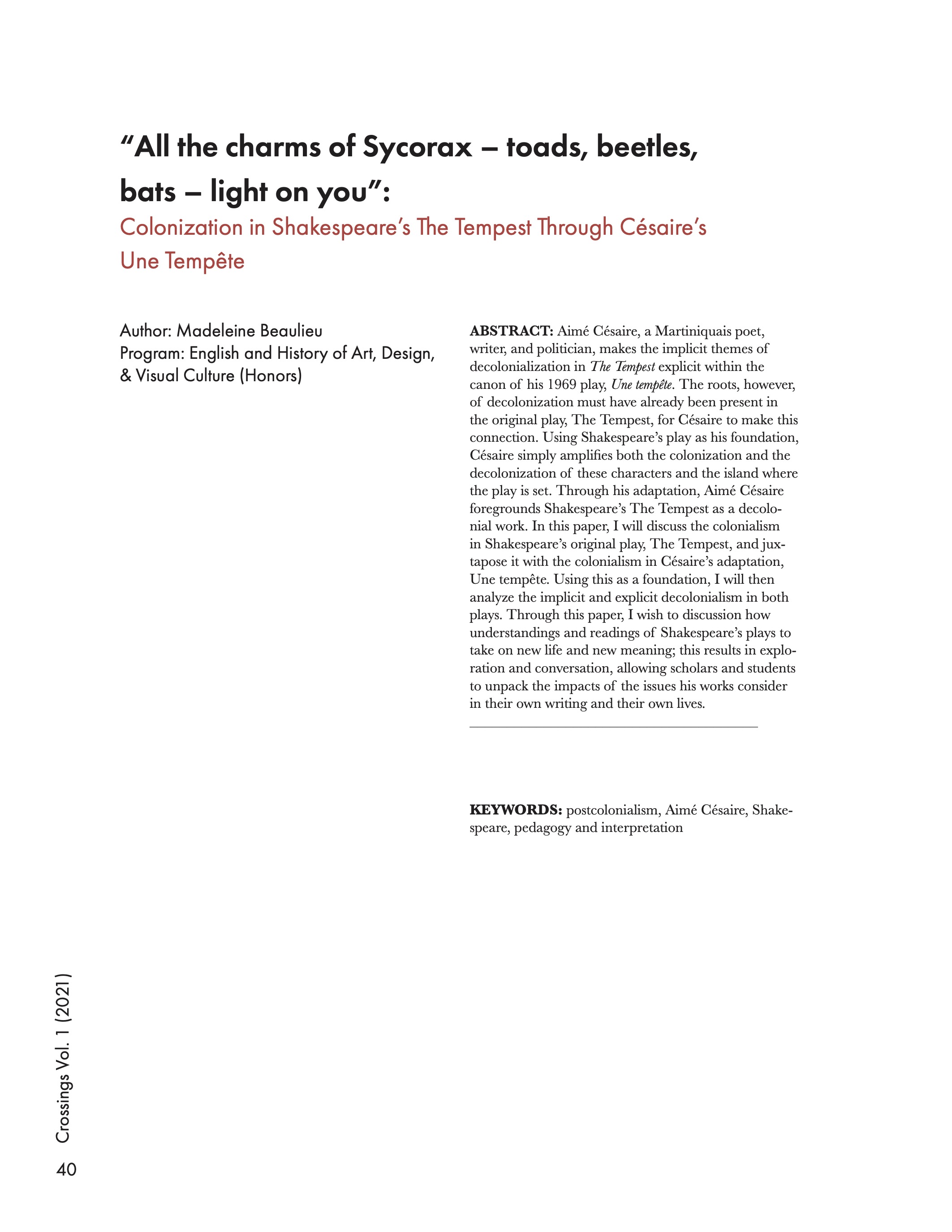“All the charms of Sycorax – toads, beetles, bats – light on you”
The Caliban of Shakespeare’s The Tempest and Aimé Césaire’s Une tempête
DOI:
https://doi.org/10.29173/crossings4Keywords:
Postcolonialism, Aimé Césaire, Shakespeare, Pedagogy and interpretationAbstract
Aimé Césaire, a Martiniquais poet, writer, and politician, makes the implicit themes of decolonialization in The Tempest explicit within the canon of his 1969 play, Une tempête. The roots, however, of decolonization must have already been present in the original play, The Tempest, for Césaire to make this connection. Using Shakespeare's play as his foundation, Césaire simply amplifies both the colonization and the decolonization of these characters and the island where the play is set. Through his adaptation, Aimé Césaire foregrounds Shakespeare’s The Tempest as a decolonial work. In this paper, I will discuss the colonialism in Shakespeare’s original play, The Tempest, and juxtapose it with the colonialism in Césaire’s adaptation, Une tempête. Using this as a foundation, I will then analyze the implicit and explicit decolonialism in both plays. Through this paper, I wish to discussion how understandings and readings of Shakespeare’s plays to take on new life and new meaning; this results in exploration and conversation, allowing scholars and students to unpack the impacts of the issues his works consider in their own writing and their own lives.

Downloads
Published
Issue
Section
License
Copyright (c) 2021 Madeleine Beaulieu

This work is licensed under a Creative Commons Attribution 4.0 International License.

